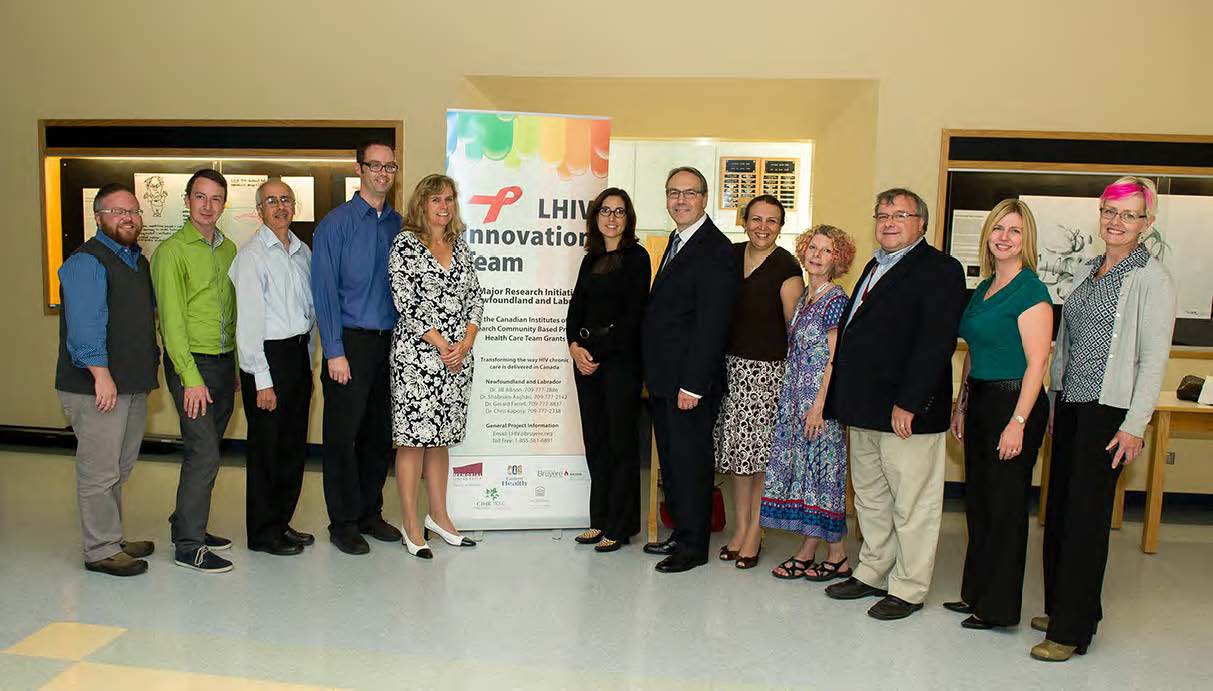Launch of new research initiative
The Living with HIV/AIDS (LHIV) Innovation Team held an official launch Sept. 23 of a major new research initiative with a goal to transforming the way chronic HIV/AIDS care is delivered in Canada. This $2.5 million five-year team grant is funded by the Canadian Institutes of Health Research, and is being conducted in Newfoundland and Labrador, Ontario and Manitoba.
 The goal of the LHIV team is to conduct the foundational work required to shift the majority of HIV care to the primary health-care community, while maintaining essential ties to specialist HIV care.
The goal of the LHIV team is to conduct the foundational work required to shift the majority of HIV care to the primary health-care community, while maintaining essential ties to specialist HIV care.
The aim is to improve the quality of HIV care by exploring improved provider communication, strategizing around ethical issues arising in care and empowering self-management for persons living with HIV/AIDS.
Dr. Clare Liddy and Dr. Claire Kendall, the principal investigators from the Bruyère Research Institute in Ottawa, joined team members from Newfoundland and Labrador, including Drs. Chris Kaposy, Jill Allison, Shabnam Asghari and PhD student Zack Marshall. Dr. Richard Marceau, vice-president (research), attended the launch, along with Dr. Reza Tabrizchi, associate dean for research and graduate studies (medicine), and Dr. Marshall Godwin, director of the Primary Healthcare Unit. Community partners attending the launch included staff members from the Provincial HIV Clinic.
Dr. Asghari explained that with improved treatment, people with HIV are now living longer and developing other chronic conditions associated with aging and specific HIV- and treatment-associated disorders.
“These multiple chronic conditions need to be managed, but the current system is not designed to deliver this kind of comprehensive care,” she said. “The goal of this project is to change how care is delivered by using innovative strategies to connect family doctors and specialists.”
Since the HIV virus emerged, the care of people with HIV has been a source of ethical issues, said Dr. Kaposy.
“Health-care providers and people living with HIV have developed ways of managing ethical issues in HIV care. But since the move to an emphasis on primary care is a new development, we are interested in finding out what new ethical issues might arise in this care environment and creating tools to support clinicians and people living with HIV. Our team – with the health ethics expertise available in the Faculty of Medicine – is also available to help provide recommendations on how to deal with these ethical issues.”
Mr. Marshall said this project provides an exciting opportunity to partner not only across provinces but also within Newfoundland and Labrador by bringing together an interdisciplinary team of university-based researchers and clinicians, policy makers, community organizations and people living with HIV.
“Part of my involvement in this project is to support the engagement of community partners, some of whom will be working together for the first time.”